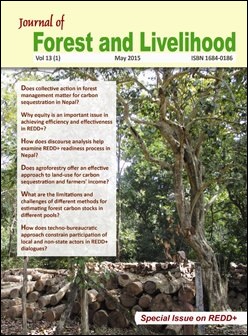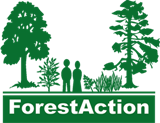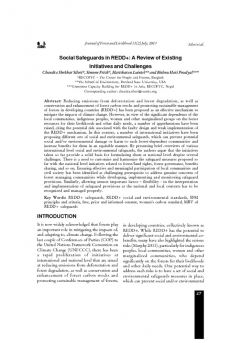Location
Initiated in 2001, Journal of Forest and Livelihood (ISSN 1684-0186) is a peer reviewed journal that documents and disseminates the insights, lessons and innovations taking place in socio-cultural, political and economic aspects of environmental governance and rural livelihoods in Nepal. We are open to all academic perspectives from political ecology and cultural politics, as long as they identify a relevant theoretical lens and draw implications for policy and practice. Publisher: ForestAction Nepal.
JFL is an open access journal and is published biannually and welcomes articles, but not limited to, in the following themes.
- Forest policy and governance
- Forest agriculture interaction and food security
- Climate change, forestry and livelihoods
- Biodiversity, conservation and development
- Ecosystems services and development
- Social inclusion, gender, equity in forest and natural resource management
- Community based resource management
- Markets and community based forestry enterprises
- Politics of knowledge in forest governance
- Environmental justice
- Political ecology
Members:
Resources
Displaying 1 - 2 of 2Enhancing REDD+ Outcomes through Improved Governance of Community Forestry User Groups
Since forests are both source and sink of carbon, scholars have suggested reducing emissions from deforestation and forest degradation, including conservation and sustainable management of forest and enhancement of forest carbon stock (REDD+) to be part of climate negotiation. Studies have shown that forests can play a role in reducing emissions in a cheaper, quicker and effective way, while generating important co-benefits, including biodiversity conservation and watershed management.
Social Safeguards in REDD+: A Review of Existing Initiatives and Challenges
Reducing emissions from deforestation and forest degradation, as well as conservation and enhancement of forest carbon stocks and promoting sustainable management of forests in developing countries (REDD+) has been proposed as an effective mechanism to mitigate the impacts of climate change.




